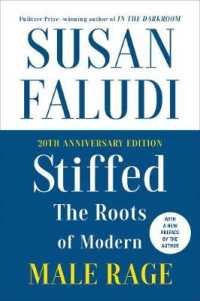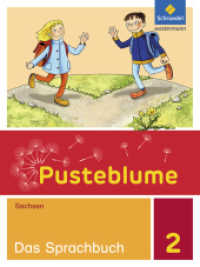- ホーム
- > 洋書
- > 英文書
- > History / World
Full Description
During the 1980s and 1990s, aging Baby Boomer parents constructed a particular type of memory as they attempted to laud their own parents' wartime accomplishments with the label "The Greatest Generation." This book is the first to tell the entire story of this particular type of U.S. World War II memory begun by U.S. President Ronald Reagan in 1984, and promoted the same year by newscaster Tom Brokaw. The story continues in 1994, when it was given academic credence by historian Stephen E. Ambrose, a sensory realism and ideal American character by director Steven Spielberg and actor Tom Hanks, sloganized by Tom Brokaw in 1998, and later interpreted in light of 9/11 and new wars.
Contents
Introduction: The Mnemonic Structure Reagan, Ambrose, Spielberg, and Brokaw Built 1. World War II: Memory, Propaganda, and Nostalgia 2. Reagan and Brokaw in 1984 3. Stephen E. Ambrose and Brokaw's 1994 D-Day Commemoration 4. 1998: Spielberg's Film and Brokaw's Book 5. Remembering World War II, 1999-2010. Conclusion: The Future of World War II Memory







